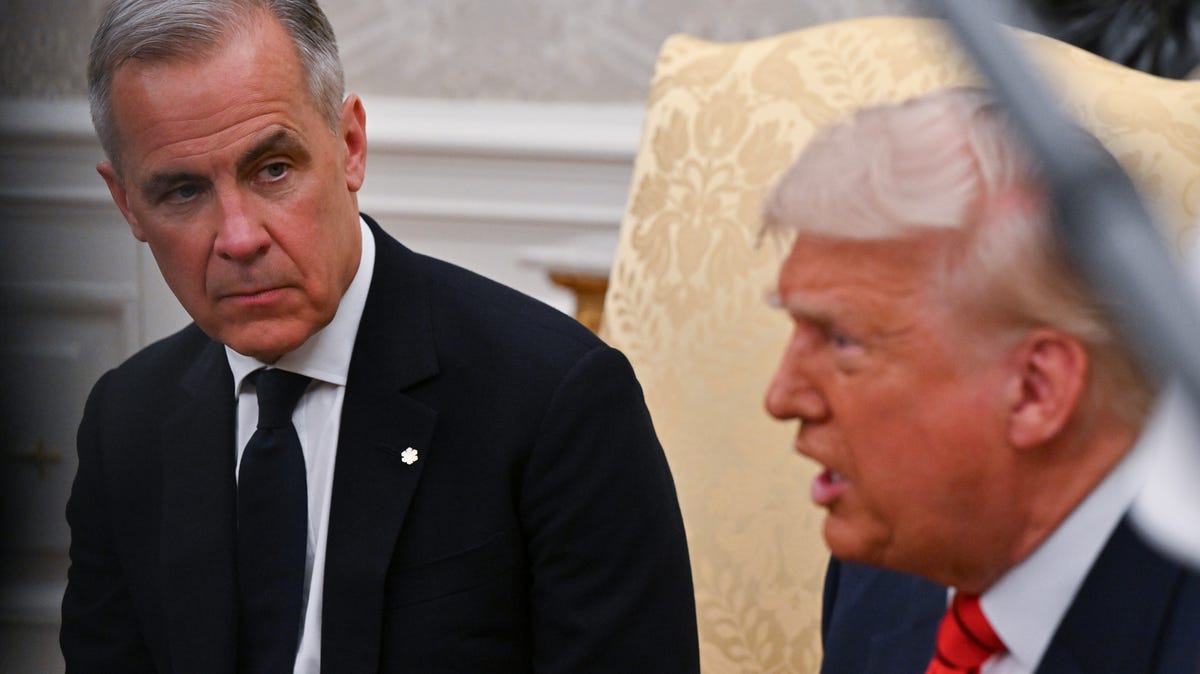Annabelle Timsit
| Washington Post
President Donald Trump said early Thursday it would be “very hard” to reach a trade deal with Canada after the country said it planned to recognize a Palestinian state – throwing talks with Ottawa into question one day before higher U.S. tariffs are set to come into force.
“Wow! Canada has just announced that it is backing statehood for Palestine. That will make it very hard for us to make a Trade Deal with them,” Trump wrote just after midnight Thursday on Truth Social.
Canadian Prime Minister Mark Carney said Wednesday that his country intends to recognize a Palestinian state at the U.N. General Assembly in September if the Palestinian Authority agrees to certain democratic reforms, including holding elections in 2026 without representation from Hamas.
U.S. and Canadian officials have been trying to reach an agreement ahead of Friday, the deadline Trump set for many countries to reach deals on lowering U.S. tariffs.
This month, Trump threatened to raise tariffs on Canadian steel and aluminum, vehicles and goods not covered by the U.S.-Mexico-Canada trade agreement to 35 percent starting Friday. If those higher tariffs take effect, the economic consequences could be far-reaching in Canada, which sends more than 75 percent of its exports to the United States.
Carney said Wednesday that the negotiations had not concluded and that they may not finish by the Friday deadline. Earlier, Carney said the talks were in an “intense phase.”
Canada’s Foreign Ministry did not immediately respond to a request early Thursday for comment on Trump’s Truth Social post.
As part of the talks, Canadian officials have made concessions that members of the Trump administration have praised – only for the president to threaten more tariffs.
“I think Canada could be one where there’s just a tariff,” Trump said Friday. “Not really a negotiation.”
The two leaders have had a turbulent relationship. Carney was elected leader of Canada’s Liberal Party in March and led it to a comeback victory in April against a backdrop of rising anxiety over Trump, while running on an explicitly anti-Trump platform. Carney declared the traditional U.S.-Canada relationship “over” and pledged to fight back with targeted retaliatory tariffs and to act with “purpose and force.” When Trump repeatedly mused about the United States annexing Canada, Carney said his country was “not for sale.”
In recent months, Carney has tried to use flattery and firmness with Trump – to mixed results. In June, Trump abruptly halted trade talks with Canada over the country’s digital services tax, calling it “a direct and blatant attack” on the United States and branding Canada as a “difficult” partner. The Canadian government later said it would rescind the tax.
Now, geopolitics could further destabilize the talks.
Canada isthe third major U.S. ally in a week, after France and Britain, to say it is prepared to change its decades-old stance on Palestinian statehood as outrage has grown over the rapidly deteriorating humanitarian situation in Gaza.
Local authorities say more than 60,000 people – including 18,500 children – have been killed in the Israeli military campaign against Hamas in Gaza. Israel has restricted aid into the enclave, prompting the United Nations to warn about “mounting evidence of famine and widespread starvation.”
Trump acknowledged Monday that there is “real starvation” in Gaza, breaking with Israeli Prime Minister Benjamin Netanyahu, who said Monday that “there is no starvation in Gaza, no policy of starvation in Gaza.”
Yet on Tuesday, when asked about France’s and Britain’s endorsements of a Palestinian state, Trump said, “You could make a case that you’re rewarding Hamas if you do that. And I don’t think they should be rewarded. I’m not in that camp.”
Canada’s announcement was met with praise from Palestinian officials and harsh criticism in Israel.
The Palestinian Authority’s Foreign Ministry said in a statement posted on X: “This courageous and principled decision marks a significant step towards justice, peace, and the long-overdue realization of the Palestinian people’s inalienable right to self-determination.”
The Israeli Foreign Ministry said: “The change in the position of the Canadian government at this time is a reward for Hamas and harms the efforts to achieve a ceasefire in Gaza and a framework for the release of the hostages.”
– – –
Amanda Coletta contributed to this report.

